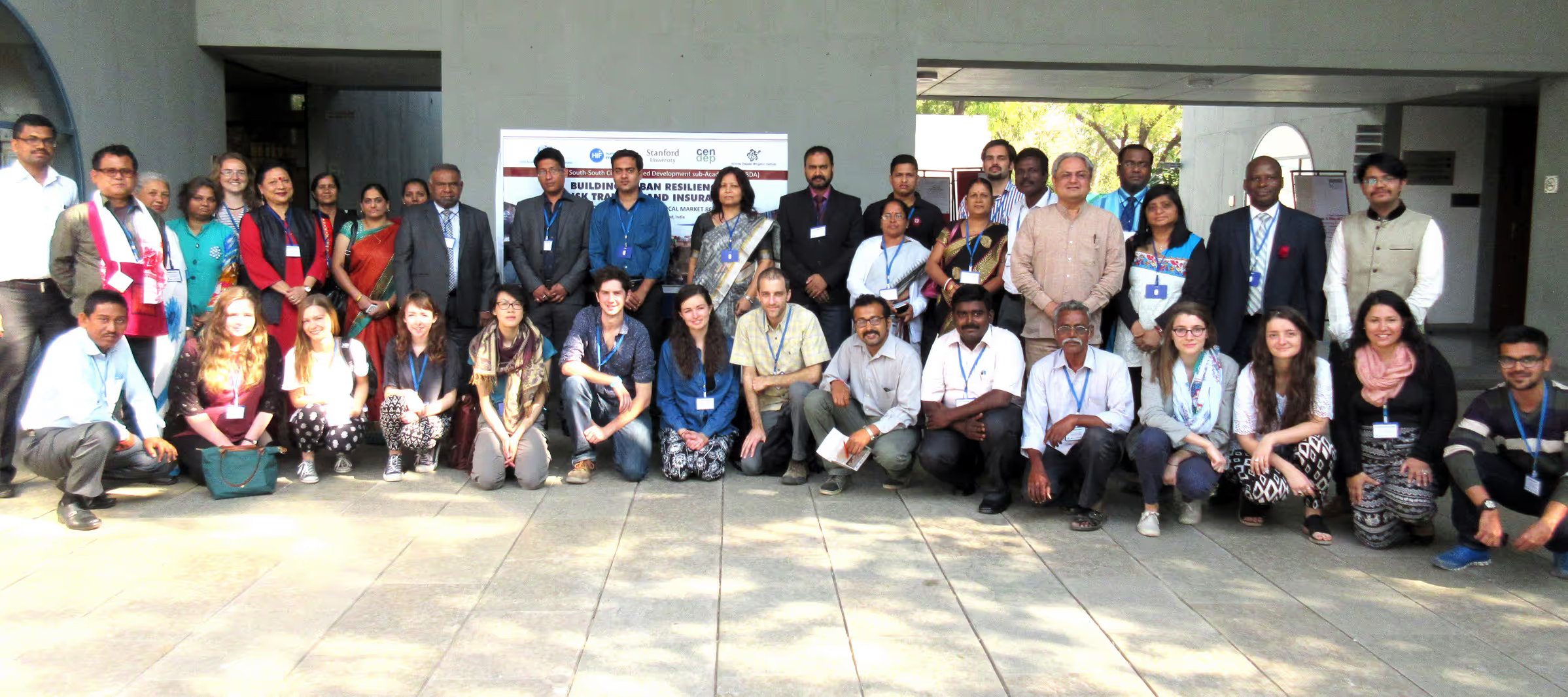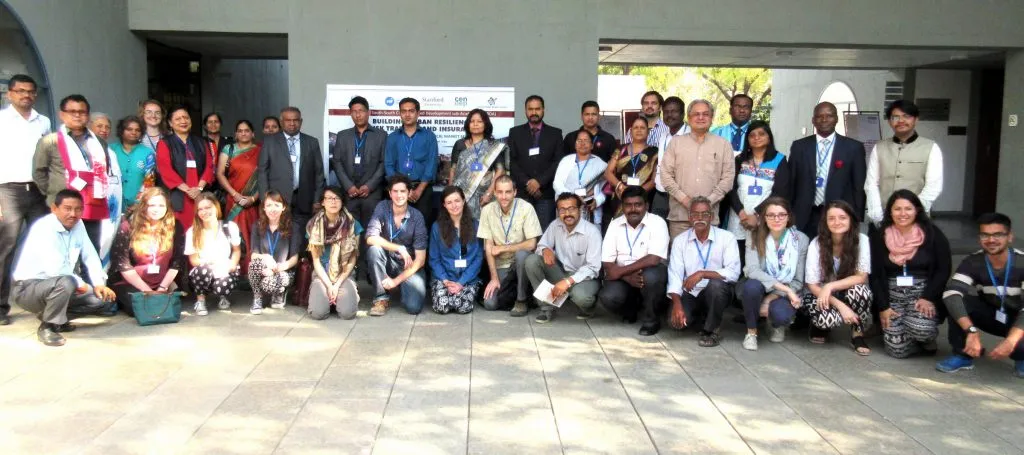Resilience through Risk Transfer: Lessons from the SSCBDA

The All India Disaster Mitigation Institute (AIDMI) in collaboration with the United Nations Office for South-South Cooperation (UNOSSC) organized the ‘8th South-South Citizenry Based Development sub-Academy (SSCBDA)’ in Ahmedabad, last month.NEW_LINENEW_LINEThe theme of this year’s academy was ‘Building Urban Resilience through Risk Transfer: Protecting Small Businesses and Local Market Recovery’. This academy provided the perfect platform for several leaders, practitioners, students and members of various community based organisations (CBOs) and non-governmental organisations (NGOs) to share their experience and knowledge of reducing risks in their communities and learn from the experience and knowledge of others.NEW_LINENEW_LINEIt is often observed that local communities are the first responders to any disaster. This high level of risk exposure has led these local communities to partner with local CBOs and NGOs to come up with coping mechanisms based on local knowledge systems. However, such risk reduction innovations from the grassroots often go unnoticed at regional and global levels.NEW_LINENEW_LINE

This year a total of 37 participants from 8 countries and 6 Indian states participated in the academy, drawn from government bodies, multi-lateral agencies and universities.NEW_LINENEW_LINEThe academy was inaugurated by Mr. Denis Nkala and Mr. Mihir R. Bhatt, Managing Trustee, AIDMI. Both Mr. Nkala and Mr. Bhatt noted that small and informal businesses in urban locations provide social mobility and a dignified means of livelihood to the working poor. However, natural hazards and climate extremes threaten the continuity of these businesses. Risk transfer approaches such as disaster micro-insurance for small and informal businesses may be a viable option for building the resilience of these businesses against disaster and climate risks.NEW_LINENEW_LINEThe first day of the academy consisted of three sessions highlighting the sub-national and regional views on urban resilience and risk transfer. The day ended with case studies presented by CBOs from Assam, Odisha and Tamil Nadu. Important issues highlighted during the day included:NEW_LINENEW_LINE• Haphazard urbanization driving urban risksNEW_LINENEW_LINE• The impact of disasters on informal workersNEW_LINENEW_LINE• The significance of data on informal settlements (slums), possible areas of insurance collaboration between the government, insurance providers and NGOsNEW_LINENEW_LINE• Viable areas of overlap between disaster microinsurance and urban resilienceNEW_LINENEW_LINE• Incentivizing insurance for small and informal businesses and workersNEW_LINENEW_LINE• The role that risk transfer approaches have played in building urban resilience in Nepal and Sri LankaNEW_LINENEW_LINEThe second day of the academy consisted of sessions on the themes of small businesses and risk transfer urban resilience, risk transfer and inclusion planning and finance for urban resilience and climate risk insurance beyond South Asia. The important issues deliberated upon included:NEW_LINE• The indispensability of risk transfer mechanisms for small businesses and street vendorsNEW_LINE• The role disaster microinsurance can play in engendering inclusion and promoting the welfare of womenNEW_LINE• Disasters can be viewed as opportunities for sustainable and inclusive development through the promotion of grassroots women’s organizationsNEW_LINE• Tweaking insurance services and offerings to match the needs of the urban poorNEW_LINE• Perspectives on disaster and climate risk microinsurance from Argentina, Brazil and FranceNEW_LINENEW_LINEThe third and final day of the academy aimed at summing up the knowledge and experience shared by the participants during the previous two days. The lessons learnt from the academy were then located in the goals of macro policy instruments such as the Sendai Framework for Disaster Risk Reduction (SFDRR) and recently ratified Climate Deal at the Conference of Parties 21 (COP21).NEW_LINEThe highlight of the day was the launch of a new insurance product by the participants of the academy. The insurance product has been designed on the basis of demand surveys and consultations with various stakeholders. This product targets 750 small businesses in Puri, Odisha.NEW_LINENEW_LINEThe experience, expertise and knowledge of the participants of the academy have been consolidated into a ‘Learning Statement’ to promote and strengthen risk transfer and insurance in line with implementation of SFDRR PoA3 (priority of action).
Stay updated
Sign up for our newsletter to receive regular updates on resources, news, and insights like this. Don’t miss out on important information that can help you stay informed and engaged.
Related articles


.png)
Explore Elrha
Learn more about our mission, the organisations we support, and the resources we provide to drive research and innovation in humanitarian response.